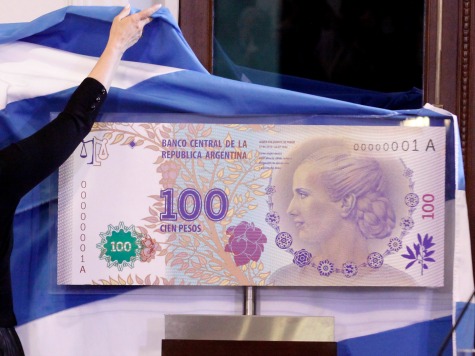
Argentina is settling a decades-old claim with the Paris Club in a landmark $9.7 million deal that will put the South American nation one more step towards rehabilitating its scarred economy. The debts have gone unpaid since Argentina’s economy defaulted in 2001.
The Paris Club, an economic alliance of 19 nations that lends money to nations facing economic turmoil, has agreed to a five-year deal in which Argentina has promised to fully pay off its debts from 2001. According to the BBC, the first payment will be due on May 2015 and consist of at least $1.15 billion. The rest of the payments, totaling $9.7 billion in arrears, will then be made annually and, should they be made on time and in full, significantly rehabilitate Argentina’s credit around the world. It will also reduce the interest rates currently imposed on Argentina, assuming the nation complies with the deal in full.
“Realisation of initial payment under a formal commitment of Argentina to fully clear its arrears is a necessary and important step for the normalisation of financial relationships between Paris Club creditors and Argentina,” the Paris Club said in a statement. The deal is based upon reports provided by Argentina detailing the state of its economy, as well as “measures implemented by the Argentine Government aimed at enhancing inclusive growth and strengthening resilience to external shocks.”
The Argentine government welcomed the news while also blaming the economic crisis on “neoliberalism.” “Today Argentina is on the path to regularizing and paying for the broken plates that 40 years of neoliberalism left us,” said Argentine Economy Minister Axel Kicillof in an unofficial statement on Radio Continental. Half of the debt had been accrued under governments before 1983. 42% of the other half of the debt was assumed by presidents Carlos Menem and Fernando de la Rúa.
The Argentine government had been essentially unable to access capital markets internationally because of its decades-old debt, and reluctant to access IMF programs that could have helped the country repair its financial situation sooner, as President Cristina Fernández de Kirchner has been critical of the IMF in the past. Kicillof told the newspaper Financial Scope that the agreement “respects our principles, which allowed us to grow 6% annually in the past ten years.”
The Argentine stock market has already responded positively to the news. Infobae reports that the Argentine Merval index ascended to 7.820,44, a record 2.18% increase.

COMMENTS
Please let us know if you're having issues with commenting.